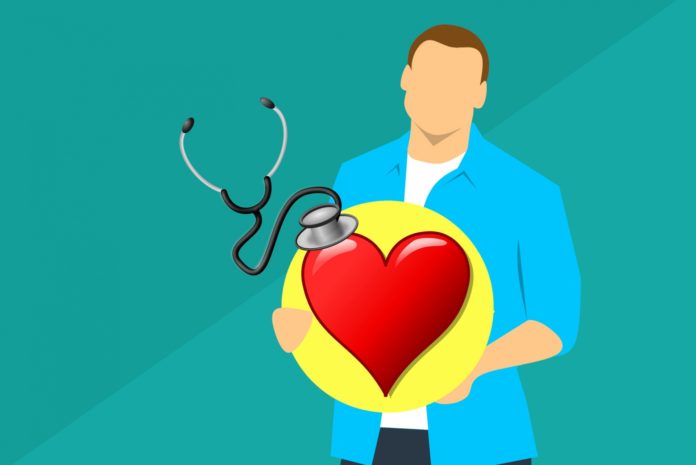Widely used blood pressure drug nifedipine is linked to increased risk of sudden cardiac arrest in high doses
A drug commonly used to treat high blood pressure and angina (chest pain) is associated with an increased risk of out-of-hospital sudden cardiac arrest. Results from the European Sudden Cardiac Arrest network (ESCAPE-NET) presented today at EHRA 2019 highlighted this risk.
Sudden cardiac arrest causes around half of cardiac deaths in Europe and one in five natural deaths. The heart stops pumping after a cardiac arrhythmia (ventricular fibrillation/tachycardia); this is lethal in minutes if untreated. ESCAPE-NET was set up to find the causes of these arrhythmias, so they can be prevented.
Calcium channel blockers (CCB), also called dihydropyridines lower blood pressure by preventing entry of calcium into heart and blood vessel walls thereby relaxing or widening them. CCBs are used for treatment of high BP, angina or chest pain, arrhythmias or irregular heart beats, coronary artery disease and Raynaud’s disease. Common side effects of CCBs include headaches, dizziness, flushing, swelling of ankles, irregular breathing and constipation.
Results showed that use of high-dose (60 mg/day and above) nifedipine was significantly associated with an increased risk of out-of-hospital cardiac arrest compared to any dose of amlodipine as well as any other class of BP medications in both the Dutch and Danish study. There was no risk associated with amlodipine
The study examined if commonly used calcium channel blockers, nifedipine and amlodipine are linked with out-of-hospital cardiac arrest. The nifedipine doses most often used and studied in this investigation are 30 mg and 60 mg and the amlodipine doses are 5 mg and 10 mg. Standard practice is to start with a lower dose, then give the higher dose if blood pressure or chest pain are not sufficiently reduced.
The study included 2,503 patients and 10,543 controls in the ARREST (Amsterdam Resuscitation Studies registry, 2005-2011) analysis and 8,101 patients and 40,505 controls in the DANCAR (Danish Cardiac Arrest Registry, 2001-2014) analysis. Patients with out-of-hospital cardiac arrest due to ventricular fibrillation/tachycardia were enrolled, plus up to five controls per patient matched for age and sex.
Results showed that use of high-dose (60 mg/day and above) nifedipine was significantly associated with an increased risk of out-of-hospital cardiac arrest compared to any dose of amlodipine as well as any other class of BP medications in both the Dutch and Danish study. There was no risk associated with amlodipine.
“Both drugs are generally considered to be equally effective and safe and neither has been associated with sudden cardiac arrest. This study suggests that high-dose nifedipine may increase the risk of sudden cardiac arrest due to fatal cardiac arrhythmia while amlodipine does not. If these findings are confirmed in other studies, they may have to be taken into account when the use of either drug is considered,” said Dr Hanno Tan, ESCAPE-NET project leader and cardiologist, Academic Medical Centre, Amsterdam, the Netherlands.



[…] Source link […]
[…] Read More […]
[…] (adsbygoogle = window.adsbygoogle || []).push({}); Source : https://medibulletin.com/common-bp-drug-linked-to-increased-risk-of-sudden-cardiac-arrest/ […]